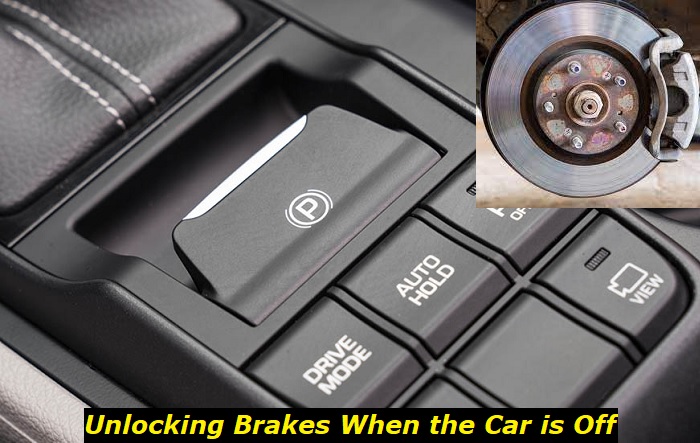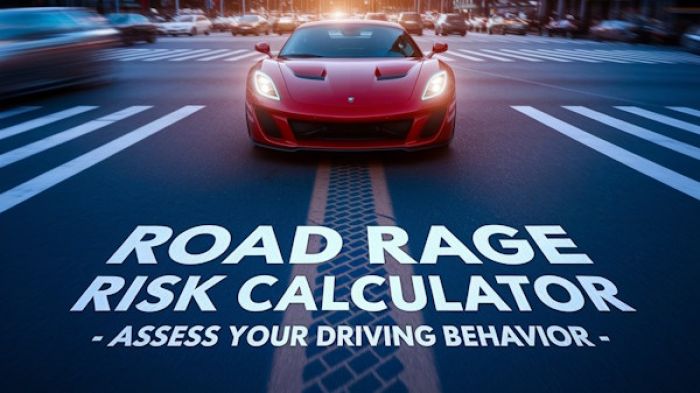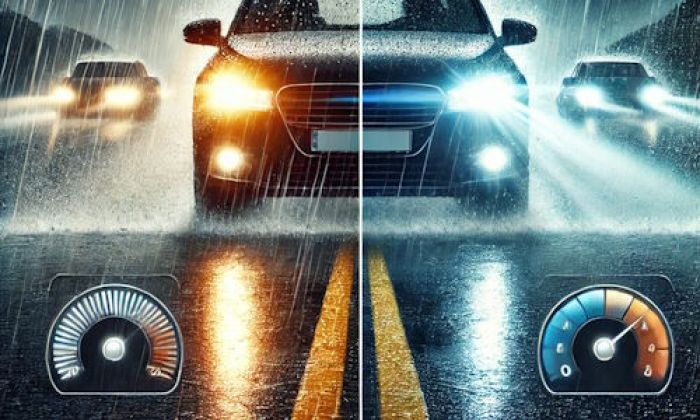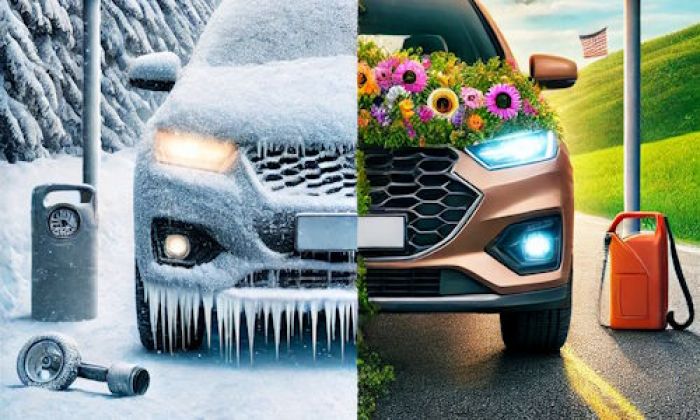Do you ever find yourself in a trying situation with your car's brakes locked, yet the engine is off? If so, this can be incredibly daunting if you don't know how to unlock them. Fortunately, there are simple steps that will get your vehicle back up and running again - let's dive into those now!
Parking brake problems highlights
- Level of urgency:medium
- DIY diagnostics:possible but complicated
- DIY repairs:impossible
- Price for repair:$100 - $450
- Common symptoms:locked wheels, car rolling
- Commonreasons:EPB problems, rear pads issues, parking brake system problems
- If ignored:no parking brake, rolling back, dangerous situations

What Are the Causes of Brakes Locked When Your Engine Is Off?
There are several factors that can lead to brakes being locked when the engine is switched off. A few of these include:
1) Your Braking System Is Overheated
Overheating of your brakes is likely the result of a problem with your braking system, such as an issue with the brake pads or discs. This can cause an excessive amount of friction and heat buildup to occur, which will eventually lead to locked brakes.
2) The Brakes Have Seized Up Due to Wear and Tear
Depending on how much wear and tear your brakes have seen over the years, they may lock up due to rust or other issues. Over time, this can cause the brakes to become seized and unable to move freely, leading them to stay locked in place when the engine is switched off.
3) Wrong Brake Fluid
Having the incorrect brake fluid can cause a problem too. Brake fluids are specially formulated to lubricate and protect your brakes, and using something other than what is recommended can lead to seized-up brakes that won't unlock when the engine is off.
4) ABS-Related Issues
If your ABS system is malfunctioning or incorrectly adjusted, this can lead to the brakes locking up when the engine is shut off. To prevent this problem, it's important to get any ABS-related issues seen by a professional mechanic promptly.
5) Parking Brake Issues
If the parking brake is engaged and then left in that position for an extended period of time, it can lead to the brakes locking up when the engine is off. This is especially true if you don't check or adjust your parking brake regularly.
Now that we have an understanding of why brakes become locked when the engine is off let's go over the steps you can take to deal with this issue.
What May Cause a Parking Brake to Stuck?
Your parking brakes are vital for ensuring a vehicle stays in place when parked. It's important to check and adjust them regularly. Otherwise, it can lead to the parking brake becoming stuck with little warning. Here are some of the most common issues that may cause your parking brake to become stuck:
- Incorrect adjustment of the brake shoes can cause them to bind against the drums and prevent your vehicle from moving even when in neutral gear.
- Worn or damaged components such as springs, levers, and pins can lead to brakes that are stuck.
- Debris, corrosion, and rust can cause components to become stuck, making it difficult to release the brakes.
- Faulty brake system components such as wheel cylinders or calipers can prevent the brakes from being released.
- Moisture can accumulate and cause the brakes to become stuck. This can happen when the vehicle is left in wet weather for an extended period of time.
You should be aware of these common issues when checking your parking brake. If any of these issues are present, it's important to get them resolved promptly by a mechanic to prevent any further damage to your brakes.
How to Unlock Brakes When Car Is Off
Unlocking your car's brakes when it's stuck in this situation is often a straightforward task that requires just a few moments of your time. Here are the steps you should follow:
- Start by turning the steering wheel to the left and right a few times, as this can help unstick the brakes.
- If this doesn't work, turn on the car's engine and press down on the brake pedal while shifting in and out of drive a few times. This can help reset your brakes if they're stuck in place due to a fault.
- You can also try to shift between reverse and drive a few times, as this can help to reset the brakes if they've become blocked for any reason.
- If these two methods don't help, you may have an issue with your ABS system and will need to get it checked out by a professional mechanic as soon as possible.
- Finally, check the parking brake lever and make sure that it's in the "off" position before starting your engine again.
You may also need to remove the wheel and check the brakes for signs of wear or corrosion. If necessary, you can use a special brake lubricant to help free up any stuck parts. Additionally, you can try using a hammer to lightly tap the brakes and help reset them.
By following these steps, you can quickly get your brakes back up and running again. It's also a good idea to check your brake system regularly to ensure that it is functioning properly. Doing so will help avoid any further issues in the future!
Why May Your Car Brakes Be Blocked After You Don't Start a Car for a While?
If your car has been sitting for a long period without being used, the brakes may become blocked due to rust buildup or other issues. This can occur when moisture gets into the brake system and corrodes the components, making it difficult for them to move freely. To prevent this from happening, you should start your vehicle at least once every few weeks and take it for a short drive to keep the brakes moving.
In cold weather, brakes can also become blocked due to moisture freezing in the brake lines. To prevent this, make sure that you park your car in a well-insulated space and keep the temperature above 0°C (32°F). If you think your brakes might be blocked because of ice, you should warm up your car for at least 10 minutes before driving.
Finally, if you have recently replaced or installed a new part in the braking system, this can cause the brakes to become blocked as well. This is due to air entering the brake lines and preventing them from moving freely. To avoid this issue, make sure that all of your brake components are properly sealed and bled before you start driving.
How Often Is It Necessary to Check Your Brakes?
It is important to check your brakes regularly in order to make sure that they are functioning properly. You should ideally inspect your brakes at least once every 6 months and before any long journeys, such as a road trip.
When checking your brakes, you should look for signs of wear and tear, perform a brake fluid test, and make sure that all components are correctly adjusted. If you notice any issues with your brakes, it's important to get them seen by a professional mechanic as soon as possible.
Bottom Line
Dealing with a car's brake locking up when the engine is off can be irksome. However, this issue can typically be resolved swiftly by following the steps outlined previously. If you're having difficulty unlocking your brakes, it's best to have them inspected by a professional mechanic immediately in order to mitigate further damage from taking place. With adequate attention and routine maintenance, you'll keep your car's braking system functioning optimally for years!
About the authors
The CarAraC research team is composed of seasoned auto mechanics and automotive industry professionals, including individuals with advanced degrees and certifications in their field. Our team members boast prestigious credentials, reflecting their extensive knowledge and skills. These qualifications include: IMI: Institute of the Motor Industry, ASE-Certified Master Automobile Technicians; Coventry University, Graduate of MA in Automotive Journalism; Politecnico di Torino, Italy, MS Automotive Engineering; Ss. Cyril and Methodius University in Skopje, Mechanical University in Skopje; TOC Automotive College; DHA Suffa University, Department of Mechanical Engineering






Add comment